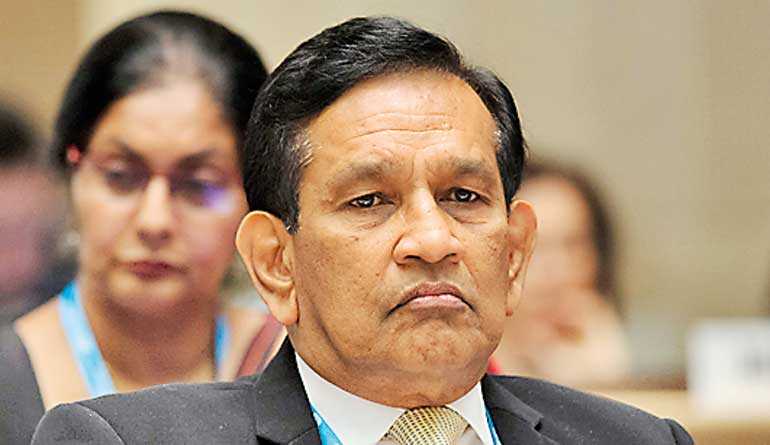Tuesday Feb 03, 2026
Tuesday Feb 03, 2026
Wednesday, 30 January 2019 00:37 - - {{hitsCtrl.values.hits}}

Introduction of new reforms at grassroots level
Family doctor for every citizen
Private-public partnership to be promoted for pharma production
Need for oriental mechanisms to tackle mental health issues
The Minister of Health, Nutrition and Indigenous Medicine made remarks that the healthcare provided in the community-level needs to be uplifted so that the countries would be better geared to combat Non-Communicable Diseases (NCDs).
“I strongly believe, and I hope most of us here would agree, that the present primary care structures in most of our countries are not well tuned or geared to arrest the rapid growth of NCDs,” he stated.
The ongoing processes of introducing reforms to enrol the population for primary care in the region was commended by the Minister, who remarked that the Health Ministry in Sri Lanka was striving to ensure the same through the introduction of new cadres at grassroots levels to create more awareness among target populations.
“The cadre pyramid in our health sectors should be less top heavy and more decentralised and field oriented, with more emphasis on and incentives for creating awareness,” the Minister added.
Dr. Senaratne also remarked about the Ministry’s plans to ensure a family doctor for every citizen, and also the emphasis on promoting private-public partnerships in the production of pharmaceuticals and the delivery of healthcare services. The Minister stated that these processes must be implemented so that the health of the public could be sustained along with indigenous mechanisms from the grass roots level.
The lack of expertise to address mental health issues was pointed out as the obstacle the region is facing in the global action plans in this regard; and the Minister again highlighted the importance of developing oriental mechanisms at community levels to tackle mental health issues.
“We do not have much-needed expertise to successfully handle regional and national programs and plans in a sustainable fashion. Here again I believe it is important to develop our oriental capacities at grassroots level, so that our people will have not only a healthy body, but a healthy mind in a healthy body,” Dr. Senaratne stated.